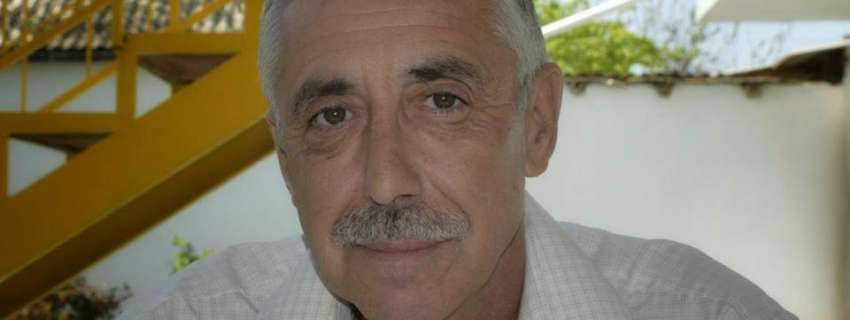Russia calls comment that Crimea is Ukraine a public call to violate RUSSIAN territorial integrity

FSB documents in the prosecution of Crimean Tatar activist Suleyman Kadyrov appear to be written by the same person as the ‘court’ rulings. This is only one of the features of a prosecution described by the defence as “fabricated from start to finish”. Kadyrov’s lawyer Alexander Popkov noticed the apparently identical handwriting while collecting material for the European Court of Human Rights. He calls the case a conveyor belt, with one FSB captain filling in the paperwork, including the rubberstamp court rulings.
Mediazona has published the relevant documents and it certainly does look as though the 2016 application for a wiretapping warrant, apparently signed by the head of Russia’s FSB Viktor Palagin, was the same as that signed by the head of the Russian-controlled ‘High Court’, Igor Rodionov. While it might be normal for a subordinate to have filled out documents for their respective bosses, it is seriously disturbing that the same individual has done so for both the Russian security service and for a ‘high court’.
Nor is this all. An earlier 2015 wiretapping warrant, signed by the same Rodionov, also appears to have been written by the same person. So too does the protocol, drawn up by FSB Captain Vladislav Yevgenievich Dolgachev in December 2016, recording removal of Kadyrov’s laptop and telephone from December 2016.
Since two of the documents are purportedly written and signed by ‘judge’ Rodionov, it is worth noting that the handwriting on a warrant, allegedly also from the same Rodionov, allowing wiretapping of another victim of political persecution, the journalist Mykola Semena, is written in quite different handwriting.
Popkov assumes that all these documents were filled out by FSB Captain Dolgachev.
As reported earlier, the FSB also appear to use ‘witnesses’ who migrate between politically-motivated prosecutions. At the ‘trial’ of Semena, 30-year-old Alexander Voytseshuk claimed that he had come upon the article over which Semena was prosecuted while “monitoring Ukrainian sites for public safety” and noticed what he called “separatist leanings”. It just so happened, he says, that two or three days later, some FSB officers turned up and he told them what he’d seen.
In ‘court’ he asserted that the article “contains a specific threat to his family” since “there was a call to unite citizens to disrupt social structures, that Crimea is Ukrainian and that Crimea will soon return”.
A few months later, this same Voytseshuk gave testimony against Kadyrov, this time admitting that the FSB had asked him to come to their office to view Internet pages.
27-year-old Denis Barantsev also gave similar testimony against both Semena and Kadyrov.
Both Kadyrov and Semena were prosecuted under Article 280.1 of Russia’s criminal code, which came into force shortly after Russia’s invasion and annexation of Crimea. This norm punishes for something called ‘making public calls to action aimed at violating Russia’s territorial integrity’, with this supposed ‘territorial integrity’, in violation of international law and treaties which Russia is a party to, treated as including illegally annexed Crimea. The two cases also shared an identical aim – namely that of forcing the two men into silence. Details of Semena’s case can be found here.
On 1 March 2018, 54-year-old Kadyrov was found guilty of making the so-called ‘public calls to violate Russia’s territorial integrity’ for writing on Facebook that “Crimea is Ukraine. It always was, is and will be” and reposting a video. ‘Judge’ Anastasia Shapoval from the Feodosia Court ignored the fact that even the supposed ‘expert’ had found no public calls, and passed a two-year suspended sentence, with a ban on any ‘public activities’ for the same period. This was then upheld by ‘judge’ Yelena Mikhalkova from the Russian-controlled High Court on 3 May.
Popkov’s colleague, Alexei Ladin has called the Kadyrov case fabricated from start to finish, and says it creates a dangerous precedent given that he was convicted without there being an actual ‘call to action’.
This was also, it transpired, a case where a social media ‘provocateur’ was used. Kadyrov had reposted a video, purportedly by somebody called Demyan Demyanchenko, on his Facebook page, with the comment that “Crimea was, is and always will be Crimea”. As often happens, he had not watched the video which was in fact posted by a person from Tomsk in Russia (who by sheer coincidence also bore the surname Kadyrov). This person pretended to be a Crimean Tatar and was later charged, under particular procedure, sentenced to 300 hours of community service and immediately amnestied.
On 1 March Kadyrov commented that the sentence had been expected, saying: “This is Russia and its Russian justice system has always been dependent on the security service and always will be. This is proof that out of fear they label everybody around, fabricating criminal cases to a fixed pattern. That is true not only of me, but of all political prisoners. We will go through all stages of this Russia twisted justice and then apply to the European Court of Human Rights”.
His powerful final address to the ‘court’ on 28 February can be read here.
Born in exile, Kadyrov was only able to return to Crimea after Ukraine gained Independence in 1991. As a graduate of the Soviet Police Academy, he took on a police job in Crimea.
He left the police force in March 2014, unwilling to work in the Russian police after annexation. He explained: “I gave my oath of allegiance to Ukraine and I remain true to it. I have not betrayed my oath”.
From then on he focused on his activities within the Crimean Tatar national movement, and as a member of the Feodosia Mejlis.
In April 2017, well before the ‘trial’, Kadyrov became the latest Ukrainian to be added to Russia’s ‘List of Terrorists and Extremists’, with this meaning that the bank account from which he received his pension was blocked, as well as numerous other difficulties on an everyday basis.





